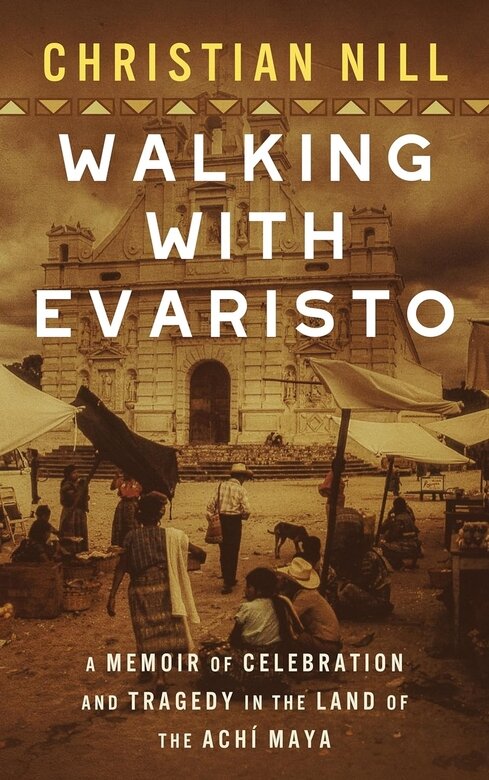
Passionate and personal confessions from a justice-driven storyteller, Walking With Evaristo: A Memoir of Celebration and Tragedy in the Land of the Achí Maya by Christian Nill is a captivating account of a nearly forgotten calamity.
After embarking on a journey to Guatemala for extended service in the Peace Corps, the author is exposed to the eye-opening wonders of a culture far removed from anything he’s ever experienced, yet he soon finds connection through shared values, curiosity, and basic human kindness. While working on various infrastructural and ecological projects in the municipio of Rabinal, he engages with the local Mayan population, with their bounty of traditional knowledge, but also learns of the abuses against rural Guatemalans at the hands of the national government and paramilitary groups.
Both a personal account of service and a deep dive into the history and cultural richness of a threatened population, this multilayered book is an enlightening read and a call to action. As the author notes, this is both a love story – love for one’s traditions, history, autonomy, and nation (both native and adopted) – and a tale of heroes, particularly those who struggled for liberation and remain left unsung by history. The author identifies strongly with radical heroes, those historical figures willing to put their careers, reputations, and lives on the line when they hear their calling, so the book kind of leads by example – illustrating past courage to inspire the same in the present.
The author’s lifelong commitment to ideals of self-determination, equality, and justice, as well as his animus towards American imperialism, come through the prose in myriad ways. However, this memoir does not read like a personal manifesto; it is a well-constructed combination of historical research, gonzo journalism, and the diary of an aspiring freedom fighter as his worldview opens to long-hidden truths. He recounts passing conversations and amusing anecdotes with vivid clarity, but also waxes poetic about the transient nature of memory, while taking time for thought-provoking asides and timely tangents about the inevitable mistakes we make as “ugly Americans,” the assumptions we’re taught about forces in the rest of the world, and the value of cultural consideration and curiosity.
At times, the emotional pull of the narrative is uneven, as the storytelling is sometimes surprisingly monotone during dramatic moments, such as the time Nill was hospitalized after an intense accident while driving a CARE truck. However, in other passages, the language seems free-flowing and charged with emotion, especially when Nill writes about the land and people of Rabinal in more abstract terms: “How can I even begin to know you? How might I finally glimpse your soul?”
That issue with tone aside, this book rings with contemporary power, despite the events largely taking place more than four decades ago, given the exploitation and brutal treatment of indigenous communities continues relentlessly around the world. Furthermore, Nill’s musings on deforestation and the feelings of futility surrounding efforts at conservation (both personally and globally) will also have immediate relevance for today’s readers. All told, this radical and timely memoir is a thoughtful, revealing, and inspiring work of history for a new generation of justice warriors.
Book Links
STAR RATING
Design
Content
Editing
Get an Editorial Review | Get Amazon Sales & Reviews | Get Edited | Get Beta Readers | Enter the SPR Book Awards | Other Marketing Services























Leave A Comment